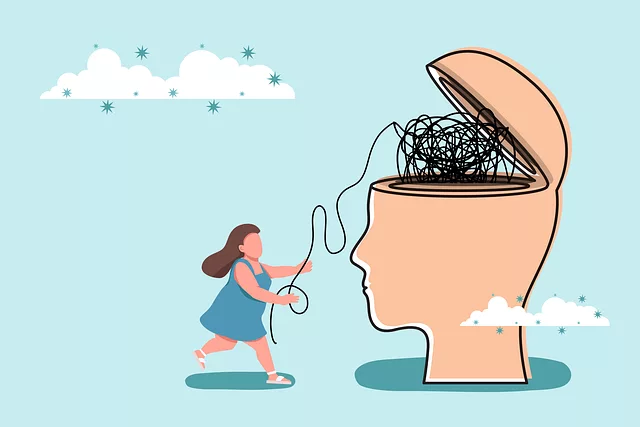Kaiser Permanente's RFM (Recovery, Resilience, Mental Health) program at their Parker appointment center is a powerful tool for community well-being. This structured framework focuses on building mental strength through conflict resolution skills and evidence-based self-care practices like mindfulness, body scans, and positive affirmations. By addressing mental illness stigma and fostering self-empowerment, the RFM model promotes overall mental wellness. The program's success is measured through clear metrics evaluating engagement, retention, and emotional regulation skill improvements, with continuous improvement driven by participant and professional feedback.
At the Kaiser Permanente Mental Health Appointment Center in Parker, implementing Resilient Front (RFM) exercises has emerged as a game-changer in fostering resilience among patients. This article delves into the transformative power of RFM, highlighting its role in building mental fortitude. We’ll explore how structured exercises, tailored to the unique needs of Kaiser Permanente’s diverse patient population, enhance coping mechanisms and overall well-being. Through case studies and success metrics, we’ll reveal strategies for continuous improvement, offering valuable insights for healthcare professionals seeking to empower individuals within the community.
- Understanding RFM and Its Role in Resilience Building
- Implementing RFM Exercises at Kaiser Permanente Mental Health Appointment Center Parker
- Measuring Success and Continuous Improvement Strategies
Understanding RFM and Its Role in Resilience Building

Resilience is a vital asset for individuals to navigate life’s challenges and setbacks. This is where RFM (Recovery, Resilience, and Mental Health) comes into play, offering a structured framework to build and strengthen resilience. At Kaiser Permanente mental health appointment centers in Parker, professionals utilize RFM as a cornerstone of their approach to enhancing mental wellness among the community.
The RFM model recognizes that building resilience is an integral part of mental illness stigma reduction efforts. By focusing on recovery and resilience, individuals learn valuable conflict resolution techniques to manage stress and adversity. This proactive approach encourages folks to take charge of their mental health, fostering a sense of empowerment and overall well-being, as opposed to merely treating symptoms after the fact.
Implementing RFM Exercises at Kaiser Permanente Mental Health Appointment Center Parker

At the Kaiser Permanente Mental Health Appointment Center in Parker, implementing Resilient Focused Mindfulness (RFM) exercises has been a game-changer for fostering resilience among patients. These sessions, tailored to the unique needs of the center’s diverse patient population, offer evidence-based self-care practices aimed at stress reduction methods and depression prevention. By incorporating mindfulness techniques into regular appointments, healthcare professionals are equipping individuals with valuable tools to navigate life’s challenges.
The RFM exercises focus on guiding patients through mindful breathing, body scans, and positive affirmations, enabling them to cultivate a sense of inner calm and emotional resilience. This proactive approach not only enhances the patient experience but also promotes long-term mental well-being. By integrating these practices into routine care, the center is creating an environment that encourages self-reflection and empowers individuals to take charge of their mental health, ultimately contributing to improved outcomes and overall community wellness.
Measuring Success and Continuous Improvement Strategies

Measuring success is a critical aspect of RFM implementation, especially at Kaiser Permanente mental health appointment centers in Parker. By establishing clear metrics and evaluation frameworks, the effectiveness of resilience-building exercises can be accurately assessed. This involves tracking participant engagement, retention rates, and improvements in emotional regulation skills over time. The data collected should reflect both qualitative and quantitative changes to ensure a holistic understanding of the program’s impact.
Continuous improvement strategies are essential to refining the RFM program. Utilizing feedback from participants, healthcare professionals, and community outreach program implementation teams, the exercises can be adapted and enhanced. Incorporating Mind Over Matter principles into these strategies promotes positive mental shifts and empowers individuals to build resilience. This iterative process ensures that the program remains relevant, effective, and aligned with the evolving needs of the Parker community.
The implementation of RFM exercises at the Kaiser Permanente Mental Health Appointment Center in Parker has shown promising results in enhancing resilience among patients. By understanding and utilizing RFM principles, the center has created a supportive environment that fosters mental well-being. Measuring success through various metrics allows for continuous improvement, ensuring that the program remains effective and adaptable to the evolving needs of its diverse patient population. This approach not only benefits individuals but also contributes to building a stronger, more resilient community within the Kaiser Permanente network.






